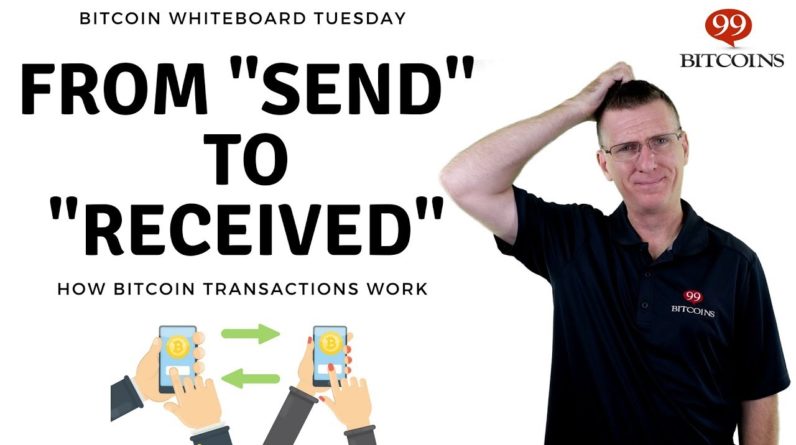
Part II – Rich Dad Poor Dad by Robert Kiyosaki
In part one of this summary we looked at
Cash Flow Cycles, escaping the rat race, the philosophy of Rich Dad VS Poor Dad, and more. In part two we will cover the History of Taxes, a secret of the Rich, Obstacles
to wealth, plus much more. Lesson 4 – The History of Taxes
and the Power of Corporations “My Rich dad just played the game smart, and he did it through corporations
– The biggest secret of the rich” A Brief History of Taxes “Every time people try to punish the rich, the rich don’t simply comply.
They react.
They have the money, power and intent to change things. They don’t
just sit there and voluntarily pay more taxes” You may have heard the saying “Nothing is certain except Death and Taxes” But, for most of human history
Taxes were not a certainty at all and looked much different to
the way people are taxed today. Occasionally Kings, Queens and presidents would
collect taxes in an effort to support wars, but there were no permanent taxes levied against
people on their income. But even in times of war, the highest tax rate in the
Roman Empire was only ~3%. Originally in England and the
U.S.A, there were no taxes. Only in 1874, income tax
became permanent in England. 39 years later, the U.S followed suit with the adoption of the 16th amendment
that made income tax permanent. These permanent taxes were passed into law
under the guise that they were to only be levied against the rich. The poor and middle-class
majorities were told that the new laws would only punish the rich.
This decision would end up
backfiring and punishing the people who voted for it, the poor and middle class.
Government Bureaucracy VS Capitalism “As the government grows, more and more
tax dollars are needed to support it” Rich dad saw Poor dad as a government
bureaucrat, and himself as a capitalist. Both are driven by opposite incentive structures. Put yourself in the shoes of a politician
or government employee. Your incentive is to spend money and hire people. The larger
your department or organization becomes, the more entrenched and respected it becomes.
You are incentivized to spend every dollar of the budget you can, because If you don’t you
risk losing it in your next budget. If you are a politician running for government,
you aren’t campaigning on your ability to cut expenses or balance the budget, you are
campaigning on all the things you will build, create or give to your constituents, and
at the end of the day, you aren’t spending the money from your own bank account, you
are spending the populations tax dollars.
Now put yourself in the shoes of Rich
Dad, a business owner. Your incentive is to spend less and only hire when
needed. And at the end of the day, you may deploy your capital in a more
efficient manner because it is your money. “My rich dad did not see Robin Hood as
a hero. He called Robin Hood a crook” This economic theory of taking from the rich
and giving to the poor and middle class, only lasted until the government’s
need for more money to sustain itself, led to the taxes needing to be
levied on the middle class and poor. At this point the Rich found a
new way to protect their assets. The Biggest secret of the rich The rich found a way to escape and
seeked the protection of a corporation. For most people when they hear the
word “Corporation '', they may imagine something tangible like a large building
with hundreds of employees, in reality, a corporation is just a piece of
paper that creates a legal body. The rich protect their
wealth through corporations. Why? Because it gives them tax advantages over
the poor and middle class.
Corporate tax rates are lower than personal income rates.
And it also protects them from lawsuits. How? It comes down to the flow of income. Take a close look at the order. An employee earns money,
pays taxes and then spends. A business owner earns money,
spends and then pays taxes. The corporation can do many
things that an employee can not, such as paying expenses before taxes. The
business owner's income flows through the corporation and pays him/her a salary as an
expense. If you pay yourself a small salary, you also avoid the higher tax brackets
that higher earning employees need to pay. The pre-tax dollars here are where
the rich find ways to minimize their tax burden as much as possible through
deductions, and other legal loopholes. Lesson 5
The Rich Invent Money The mind and your Financial operating system Most people’s operating system for
creating money is “ Get a good job, work hard and save your way to financial freedom” The Rich don’t trade their time for an
hourly salary.
They find ways to build assets. To build your asset base,
you need financial intelligence. “The single most powerful asset we have
is our mind. If it is trained well, it can create enormous wealth… an untrained mind can also create extreme poverty that
can crush a family for generations” In today’s information age, your greatest
asset is your mind. The old ways of making money and getting rich don’t work
today. Developing financial intelligence is the key to finding and creating
profitable business opportunities. To gain financial intelligence
you need to learn the following 1. Financial literacy – The ability to
read and understand financial statements. The Financial statement of a business
can show its strengths and weaknesses.
2. Investment strategies – Investing
is the science of money making money. 3. An understanding of Supply and demand 4. An understanding of the law. Be aware of all state and federal regulations
and always play by the rules. Gaining financial intelligence will allow you
to see opportunities outside of the “Get a job, Work hard and save” model of making money. Always be learning to improve these 4 areas. Timing and Courage “Often in the real world, It’s not
the smart who get ahead, but the bold” Financially intelligent people always have
more options for creating wealth because they are constantly seeking and inventing
new ways to invest or build their assets.
You can’t be the one sitting
on the sidelines waiting for the perfect timing or perfect idea
to arrive. You need to take action. Courage alongside a willingness to take
calculated risks can make the difference. Lesson 6 Work to learn – Don’t work for money. “Job" is an acronym for “Just
over broke”. Unfortunately, I would say that applies to millions of people” The long view “Are people looking to where they are
headed or just until their next paycheck?” If you need to get a job and work for someone,
work to learn new skills. Most people only focus on short term benefits and will take a
better paying job that teaches them nothing, over a job that will give them the skills
to become successful in the long-run.
When you are first getting started, value
learning new skills over money and job security. Specialization VS Knowing a little about a lot “Job security meant everything to my educated
dad. Learning meant everything to my rich dad” Poor Dad wanted Robert to become highly
specialized and focus on job security, Rich Dad wanted Robert to
know a little bit about a lot. The main skills you should focus on learning are: 1. Management of Cash flow
and how to deploy capital. 2. Management of systems. How to plan
and allocate your time efficiently. 3. Management of people. Learn
how to hire and motivate a team. The main specialty skills Robert recommends
are sales, copywriting and marketing. And the main communication skills are
writing, speaking and negotiating. Most people will tell you it isn’t good
to jump from one company to another, but In general, most jobs will not expose
you to all of these relevant skills. Robert considers working for
different companies a wise decision, you will learn more and from the long
view perspective this will pay dividends.

Talent VS Financial Intelligence
“The world is full of talented poor people” Talent isn’t enough to become successful. Many talented people are poor or working at
low paying jobs. This is because they haven’t learnt the skills to leverage
their talent into financial rewards. Lesson 7 Overcoming Obstacles “The primary difference between a rich person
and a poor person is how they handle fear” Here are five of the reasons people
fail to achieve financial success: 1. FEAR. They fear losing
money more than making it. 2. CYNICISM – They are cynical and do not
believe it is even possible to become wealthy. 3. LAZINESS – They are too
lazy to change their habits. 4. BAD HABITS – Their behavior towards
money is dictated by their habits. 5. ARROGANCE – They’re arrogant,
ignorant and ego-driven. 1. Overcoming the fear of losing money. Rich and Poor people have fear, but how they
deal with fear is different. The Rich are able to handle the fear of losing money,
whereas the poor become parazlyed by it. Poor people often avoid the topic
of fear or money altogether. The poor look at losses as
permanent and irreversible, the rich look at losses along the
journey as inevitable and only temporary.
The key is to take inspiration
from your failures along the way. Knowing that they are a valuable lesson to
learn from and are only temporary setbacks. 2. Overcoming cynicism. “Cynics criticize, winners analyze” Cynicism and doubts are
what keep most people poor. When you don’t even believe it is possible
to become rich and you have self-doubt, you let opportunities slip past
you and you prefer to play it safe. Cynics will tell you all the
reasons why something won’t work, but have never actually tried it themselves.
Rich people are always analyzing and
thinking about how things CAN work. Poor people are always criticizing and
thinking about why things won’t work. 3. Overcoming laziness. Too many people lazily accept the status
quo and don’t strive for something better. “Rather than saying “I can’t afford
it” try to change your mindset to, “How can I afford it” This opens the
brain and forces it to think of solutions” “I can’t afford it” immediately
shuts down your ambition. A Little Greed (But not too much) Too much greed is a bad thing, but Kiyosaki tells us a little bit of
greed will help you overcome laziness. 4. Overcoming bad habits. To develop good financial habits,
start by paying yourself first. The majority of people pay everyone else
before they pay themselves. It should be the other way around.
Pay yourself first when
you get paid, then everyone else. If you don’t have enough to pay the government or creditors,
this will force you to creatively think of ways to make more money and repay them. If you pay
yourself last, you won’t have this incentive. 5. Overcoming arrogance. “Many people use arrogance
to hide their own ignorance” Robert often found that people who didn’t
know what they were talking about, would often bluff their way through a discussion
with arrogance. Try not to be that person. When it comes to investing and wealth creation,
never assume that you know everything.
Always be open to other people’s perspectives and
never assume that you have all the answers. Lesson 8
Getting Started To get started on your journey to financial
freedom, try the following 10 steps 1. Find a purpose Find a reason greater than yourself to keep
you on track and help push through obstacles. 2. Make daily choices that
propel you towards your purpose. Your spending habits reflect who
you are. You can choose to be rich, poor or middle class every day through your daily
decisions. Poor people have poor spending habits. Ultimately, your future is the compounding
of all the small decisions you make each day. Replace negative thought patterns such as
‘‘I’ll never be rich’’ by thinking about one thing you could be learning or doing today
that propels you towards that financial goal.
3. Choose your friends carefully. Robert warns us not to listen to poor or
frightened people. They will tell you all the reasons why what you are doing won’t work,
but actually have no skin in the game themselves. Choose which people you want to associate with, as these people will influence the decisions
you make and opportunities you find the most. 4. Master what you have learned,
then learn something new. “ You become what you study” This is the financial version
of “You are what you eat” For the masses, the formula most
used is to Work for money. Wake up, go to work, pay bills , repeat. In today’s fast paced economy, it is
not so much what you know anymore, but how fast you are able to learn new things.
There are unlimited ways to make money, but so many believe they can only
become an employee to earn it. 5. Develop self discipline : pay yourself first. When paying bills becomes more
important than paying yourself, your life is being dictated by those obligations. If you pay yourself first, you’ll always
be building your asset column and you’ll be less likely to take on consumer debt if
you know you have to pay yourself first. 6. Pay well for good advice. “Information is priceless” If you aren’t sure how to do something, be willing
to pay someone who is already doing that thing. The information you are paying for will be a tiny
fraction of the ROI you will gain in the future. 7. Get something for nothing Whenever you make an investment, always be focused
on at least breaking even as quickly as possible. Once the asset’s initial
investment has been recovered, any additional income from the asset
sitting in your asset column is just an added bonus and you won’t be kept awake
at night thinking of market fluctuations.
8. Use your assets (not your
capital) to pay for luxuries. “Borrowing money is easy in the
short-term, but hard in the long run” Never go into debt for luxuries. Robert
just like most people loves luxuries., but he will never go into debt to finance
luxurious cars or other such luxury products. Only money generated from assets
can be put towards luxury. This allocation of money and impulse
control does require discipline. Most people lack this discipline and
end up becoming servants to the debt they took on to pay for luxuries
instead of focusing on building assets. 9. Find Heroes- We all need heroes to
look up to and inspire us on our journeys.
Spend some time and effort choosing a
few financial heroes you wish to emulate. Read about them, listen to interviews with
them, learn about their personalities and channel their energy into the way you
conduct your own financial journey. 10. Give and you shall receive If you can’t teach something, that
means you don’t truly understand. The more you teach others what
you know, the more you will learn. Always be generous with your knowledge… The more you give, be it knowledge, money,
smiles, love …. The more you will receive. Make sure this giving truly comes
from the joy of giving and helping others and not because you expect
to receive something in return..




